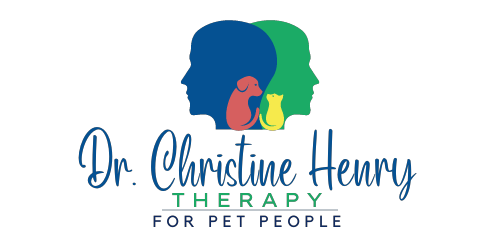
The Impact of Hormones on ADHD and Autism
Do you experience more intense hormonal changes?
We often experience more intense effects from hormonal fluctuations, such as those occurring during the menstrual cycle, pregnancy, or menopause, compared to neurotypical individuals.
For autistic and ADHD individuals, these changes can amplify existing challenges like emotional dysregulation, sensory sensitivities, or executive functioning difficulties. By being aware of this, we can better manage our symptoms by anticipating changes and adjusting our coping strategies accordingly.
For example, we can explain that certain times of the month are harder because of hormonal changes, so we might need extra help or flexibility. This helps create a supportive environment where our needs are understood, leading to better care and more suitable adjustments at work or school, improving our overall well-being.
Quick Find
Explore resources for understanding, support, and practical strategies.
Disclaimer: This page focuses on the experiences of individuals assigned female at birth (AFAB). While hormones influence neurodivergence across all genders, this content specifically explores how estrogen, progesterone, and testosterone affect AFAB individuals.
Below is a selection of general articles on this topic. For information about hormone changes during pregnancy, postpartum, or breastfeeding, please visit my Being a ND Parent page.
PMDD & Autism/ADHD
Neurodivergent individuals experience PMDD at a higher rate than neurotypical individuals, often exacerbating existing challenges. Support and accommodations during this time are essential.
Articles:
PMDD, Autism, and ADHD: The Hushed Comorbidity
PMDD and Autism: Sensory Overload
Podcast Episodes:
My Experience of Autistic Pre-Menstrual Dysphoric Disorder
Understanding PMDD: The Link Between Hormonal Imbalances and Neurodivergence
ADHD and Hormones
Recent research highlights a significant link between hormonal fluctuations and ADHD symptoms. Estrogen, progesterone, and testosterone play a crucial role in dopamine regulation, a neurotransmitter essential for focus, motivation, and impulse control. As hormone levels shift, they can exacerbate executive dysfunction, emotional dysregulation, and attentional challenges.
How Progesterone and ADHD Are Linked
How Estrogen Effects Women with ADHD - Article CHADD
Menstrual Cycle Phases and ADHD: Why Cycle Syncing Is Essential
Journal Articles
Prevalence of hormone-related mood disorder symptoms in women with ADHD
Women with ADHD May Have More Severe Symptoms of PMDD, Postpartum Depression and Menopause
Prevalence of Hormone Related Mood Disorders in Women with ADHD
ADHD Symptoms in Females of Childhood, Adolescent, Reproductive and Menopause Period
Female-specific pharmacotherapy in ADHD: premenstrual adjustment of psychostimulant dosage
Reproductive Steroids and ADHD Symptoms Across the Menstrual Cycle
Let’s Talk
If you have questions or want support, please reach out to me and we can get started.
ADHD and Menopause
Yes, brain fog, memory issues, and struggles with executive functioning occur for many people during peri and menopause. However, for many ADHDers, their symptoms get much worse. Those who were previously diagnosed with ADHD may find that their medications and established strategies no longer work as effectively.
Many people first recognize their ADHD symptoms in midlife as declining estrogen during perimenopause and menopause exacerbates cognitive difficulties.
ADHDers often already struggle with falling asleep, staying asleep, and feeling rested, due to differences in dopamine regulation and circadian rhythm. When progesterone levels drop during perimenopause and menopause, it can make sleep disturbances even worse—leading to more frequent awakenings, increased restlessness, and heightened irritability, further exacerbating ADHD symptoms.
Additionally, testosterone may play a role in supporting cognitive function, motivation, and energy levels, with some research suggesting it could help mitigate ADHD symptoms during menopause.
While ADHD medications can provide some relief, many individuals continue to face significant challenges. The issue is that treatment often focuses solely on ADHD, overlooking the impact of hormonal fluctuations. Addressing both ADHD and hormonal changes together is essential for more effective symptom management.
ADHD Impairment Peaks in Menopause
ADHD and menopause: Symptoms and support
My ADHD & perimenopause journey: Vicky’s story
ADHD and Hormones: Advocating for Yourself Through Perimenopause and Beyond
Menopause and ADHD: How Estrogen Changes Impact Dopamine, Cognition, and Women’s Health
Journal Articles:
2 Perimenopause, Menopause and ADHD = “More than half indicated that a sense of overwhelm, brain fog & memory issues, procrastination, poor time-management, inattention/distractibility and disorganization had a 'life altering impact’ during the critical menopausal/perimenopausal window.”
Podcast Episodes:
Autism and Hormones
Many autistics have increased anxiety, brain fog, meltdowns, exhaustion, and difficulty with routine changes, often without realizing that hormonal shifts are amplifying their autistic traits. A few studies indicate that exposure to testosterone in the womb may play a role in the development of autistic traits. Additionally, conditions associated with hormonal imbalances, such as PMDD and PCOS, are more commonly found in autistic individuals.
Podcast Episodes:
The physical side of autism: health, hormones and hypersensitivity (The squarepeg)
Journal Articles:
Menstruation and menopause in autistic adults: Periods of importance?
‘When my autism broke’: A qualitative study spotlighting autistic voices on menopause
Elevated rates of testosterone-related disorders in women with autism spectrum conditions
Menstruation and menopause in autistic adults: Periods of importance?
Polycystic ovary syndrome and autism
Elevated rates of testosterone-related disorders in women with autism spectrum conditions
Autism and Menopause
Because autism research primarily focuses on children, the impact of menopause on autistic adults is often overlooked. Many autistic individuals report that menopause amplifies their traits, sometimes leading to a late recognition of their autism.
Emerging research links menopause to increased sensory sensitivities, emotional dysregulation, and difficulty managing symptoms like hot flashes. The sharp decline in estrogen, which supports dopamine and serotonin, may worsen executive dysfunction, anxiety, and mood instability. Meanwhile, decreasing progesterone, known for its calming effects, can contribute to irritability and sleep disturbances.

General Perimenopause/Menopause Information
Many healthcare providers misinterpret perimenopausal symptoms as anxiety or depression, often dismissing concerns instead of considering the impact of hormonal changes. As a result, many of us are simply prescribed antidepressants and sent on our way. Perimenopause can begin far earlier than many people realize, with some people experiencing symptoms as early as their mid-30s. While the average age for menopause is 51, perimenopause—the transitional phase—can last up to 10 years.
If you’re in your 30s or early 40s and experiencing unexplained or worsening cognitive, mood, or sleep issues, perimenopause could be a factor—and it’s worth advocating for proper testing and support.
Articles:
Is It Anxiety, Depression, or Perimenopause?
Menopausal Women Are Often Gaslit By The Medical Profession
Menopause Myths You Should Not Believe
Contributor: In the Misdiagnosis of Menopause, What Needs to Change?
Mood Changes During Perimenopause Are Real. Here’s What to Know
Videos:
Podcasts & You Tube Channels
Hit Play Not Pause Podcast - Selene Yeager - health and science journalist
Hello Menopause Podcast - Stacy London - founder of State of Menopause
Dr. Mary Clare Haver, YouTube - OBGYN. founded The 'Pause Life
Menopause Taylor, YouTube - Barbara Taylor, M.D. is a gynecologist
Dr. Kelly Casperson You Are Not Broken, YouTube - Urologic surgeon, sex educator
Dr. Rachel Rubin, YouTube - Urologist and Sexual Medicine Specialist
Black Girl’s Guide to Surviving Menopause - Omisade Burney-Scott - menopause advocate, social justice warrior
Menopause Books
The Menopause Brain - Lisa Mosconi, PhD
The New Menopause - Mary Claire Haver MD
Everything You Need to Know About the Menopause (But Were Too Afraid to Ask) - Kate Muir
Finding A Provider
Over and over, I hear stories of people going to their PCP, OBGYN, or Endocrinologist, only to have their concerns dismissed after a single blood test—usually FSH (Follicle-Stimulating Hormone)—as "proof" that they are not in perimenopause. However, diagnosing perimenopause is far more complex than just one lab result.
Many providers fail to consider a patient’s full range of symptoms, often relying on outdated guidelines or outright dismissing their concerns. Below is a list of knowledgeable providers who won’t dismiss your symptoms and have up-to-date expertise in perimenopause, hormone health, and midlife care.
Adding To This Page…
I am continuously adding to this page as I get new information so come check back to see new additions. If you have any resources that you have found helpful but are not listed please email me as I would love to add them: henry@therapyforpetpeople.com
Please forgive any typos or broken links. As an ADHDer it’s a challenge for me to keep up but I am making it a priority as this page is truly a labor of love. Be sure to forward the link to others in your life who may benefit from this information. Bring some food and water as this is a deep deep dive into all things neurodivergent.
Explore More Resources
Questions? Need Support?
If you have questions or need support, please reach out to me! This journey can be difficult, but you don’t have to walk it alone.

























